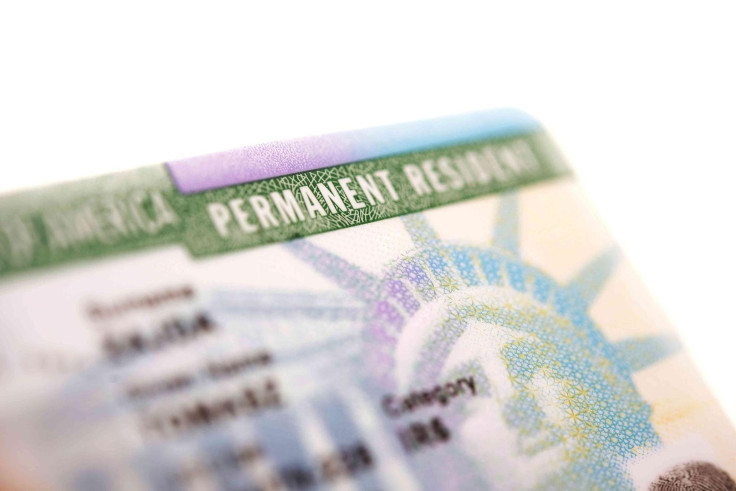
For many Latino immigrants, times are fraught, as the fear of deportation is the order of the day in the United States. While the politics of it, combined with explosive news headlines, make it feel like the odds are stacked against an undocumented immigrant in the US, legal avenues exist that offer hope for stability. This guide is here to share those pathways with you so you know what to do going forward.
Deferred Action Programs
DACA, or Deferred Action for Childhood Arrivals, is for Hispanic candidates who came to the US as kids without papers. If you qualify, you can stay in the United States legally for now. On top of it, you get a work permit.
Here's how this works:
- You must have arrived in the US before you turned 16.
- You've been living here since June 15, 2007.
- No serious crimes on your record.
If all that fits, you might be eligible. But as with many positions where policy intersects with politics, there's a catch. DACA isn't permanent. Courts continue to argue over whether it should even exist. Some judges say it's illegal, others disagree.
Once you've applied, DACA gives you two years of protection. After that, you reapply. One thing, though, approval isn't guaranteed every time. Policies change depending on who's in charge.
Additionally, circumstances such as having a criminal conviction, being in deportation proceedings, and other concerns about eligibility can further complicate your situation. In that case, working with an experienced abogado de inmigración, or immigration lawyer, may make a huge difference.
Experts like Vanessa R. Alonso, Alonso & Alonso Attorneys at Law, who are well-versed in dealing with the Hispanic origin group of clients, can make sure you don't miss deadlines or fall into traps that could risk your stay. They can help you explore other options for which you might qualify, depending on your situation and immigration policies.
Asylum and Refugee Status

Asylum is for people running away from danger in their home countries. To qualify for this, you need to show credible fear. This means you need to prove you'd face harm if sent back home. Evidence such as letters, news articles, and police reports can certainly help build your case.
Once you win asylum, you get the following benefits:
- Work authorization within a year
- Ability to bring certain family members later
- Pathway to a green card after one year
However, it's not an easy process. Asylum cases take time, and a positive outcome isn't guaranteed unless your case is rock-solid.
Refugee status is similar but works differently. Refugees apply outside the US, often through camps or embassies. Once accepted, they come here legally.
Temporary Protected Status (TPS)
TPS isn't just about individuals. It's for entire countries. Say your home country is unsafe because of war, earthquakes, hurricanes, etc. The US government may decide not to send citizens of the affected country back home until things calm down.
To qualify for a TPS, you need to prove you're from a designated country. Also, you must have lived in the US since the date they announced TPS for your country.
However, the problem with TPS is that it isn't permanent. Every few months, the government decides whether to extend it. If they don't, there's deportation risk.
Family-Based Pathways
If someone close to you is a US citizen or a green card holder, they can sponsor you. Spouses, unmarried children under 21, and parents of US citizens don't have to wait years for visas. Brothers, sisters, and married children have to wait longer because there's a cap on how many visas the US hands out each year.
There's also VAWA, or the Violence Against Women Act. Abused spouses or kids of US citizens or green card holders can self-petition for residency.
Cancellation of Removal
You qualify for this if you've lived in the US continuously for 10 years, have good moral character, and deporting you would cause extreme hardship to your household, especially if it's a mixed-status family, meaning some members are US citizens or lawful residents while others are of undocumented immigration status. Winning cancellation of removal gets you a green card, but losing means deportation and, consequently, family separation.
Recent Changes, Challenges, and Uncertainties
Things move fast in immigration law. Here's what 2025 looks like:
- USCIS pauses: Right now, USCIS has stopped processing certain applications for people who entered under humanitarian parole programs. Cubans, Haitians, Nicaraguans, and Venezuelans are all affected.
- Court battles: DACA and TPS face lawsuits.
- Congressional gridlock: Comprehensive immigration reform keeps stalling.
- Backlogs: Immigration courts process cases slowly, and waiting lists stretch for years.
The law has the capacity to shape immigration experiences. It remains to be seen what will emerge from the deliberations of the relevant bodies.
Final Thoughts
Whether you're Hispanic or Latino, knowing the steps to take in accordance with immigration laws can help legitimize your stay in the United States. Given the complexities, working with lawyers who know the depths of immigration law and also understand the Hispanic and Latino culture can make the process far less intimidating and more personal, hopefully shaping the outcomes in your favor.
© 2025 Latin Times. All rights reserved. Do not reproduce without permission.








